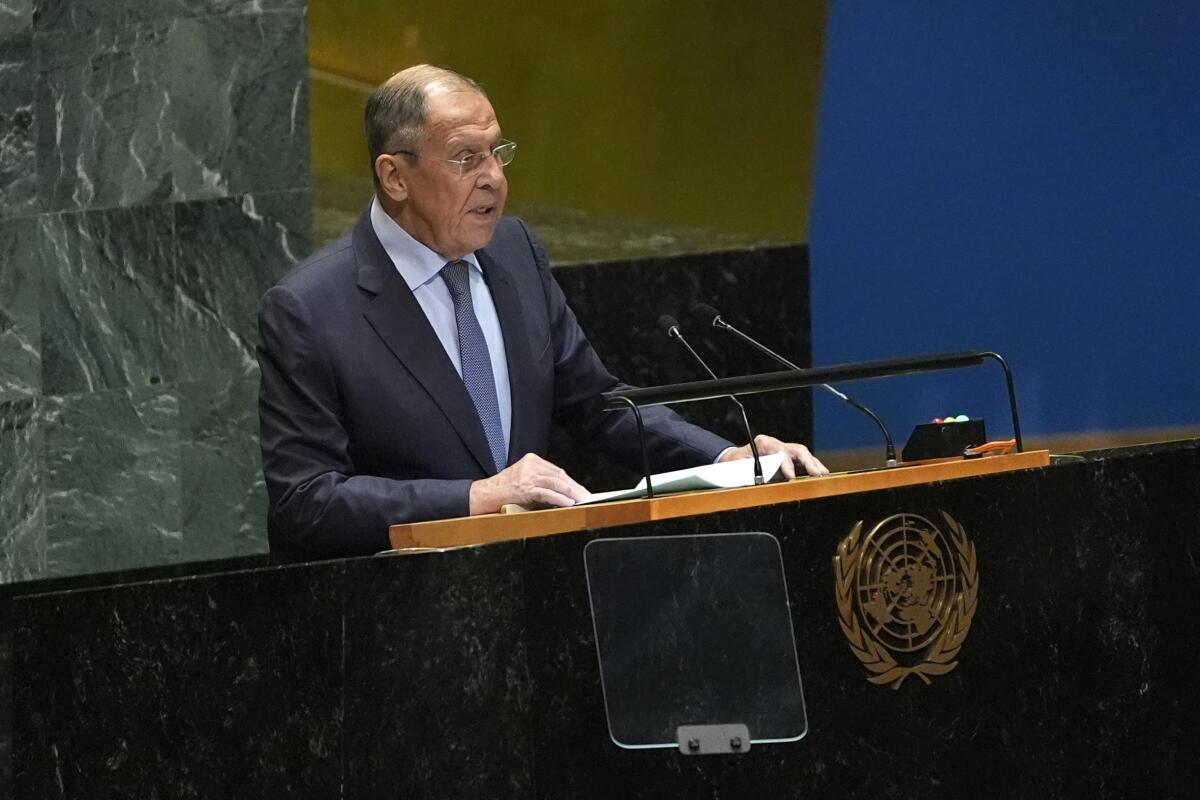Russian Foreign Minister Sergey Lavrov issued a strong nuclear warning during the United Nations General Assembly, cautioning Western nations, particularly Washington and London, about their involvement in the Russia-Ukraine war.
Lavrov called the potential confrontation with a nuclear power like Russia a “suicide venture” for Europe. His remarks follow ongoing tensions between NATO and the Kremlin, with NATO leaders warning that a direct conflict with Russia remains a dangerous possibility due to its extensive nuclear arsenal.
Lavrov’s warning ties back to historical references, suggesting that the West is aiming for Russia’s strategic defeat, much like Operation Unthinkable in 1945, which was a secret plan against the Soviet Union.
He accused the U.S. and the U.K. of orchestrating a proxy war through Ukraine, labeling the Ukrainian government a “neo-Nazi regime”—a claim that has been rejected by both Ukraine and the international community. Lavrov argued that the West was preparing Europe for a disastrous war against Russia.
Amid escalating rhetoric, Russian President Vladimir Putin has also revised Russia’s nuclear doctrine. The updated policy allows for nuclear responses to large-scale attacks on Russia, whether they involve nuclear weapons or conventional military actions that threaten the nation’s survival.

Sergey Lavrov Issues Nuclear Warning at UN, Cautions West Against Escalating Russia-Ukraine Conflict
This development has raised concerns, especially as Ukraine continues to use Western-provided weapons such as American ATACMS and British Storm Shadow missiles to target Russian forces.
Despite Lavrov’s and Putin’s nuclear threats, analysts like Gustav Gressel from the European Council on Foreign Relations downplay the likelihood of actual nuclear escalation.
Gressel suggested that Russia’s statements are more bluffs than indications of any immediate policy changes, arguing that if Russia were serious, the conflict would have already escalated to nuclear war. Western military support for Ukraine continues, but with caution to avoid actions that might provoke further escalation.
Lavrov’s comments also echo previous warnings, emphasizing that while “nobody wants a nuclear war,” Russia’s nuclear forces remain fully combat-ready. He expressed confidence that global decision-makers understand the gravity of Russia’s warnings. Although Lavrov dismissed the likelihood of immediate nuclear retaliation, he cautioned that Russia’s military capabilities pose serious consequences for those supporting Ukraine.
